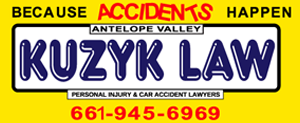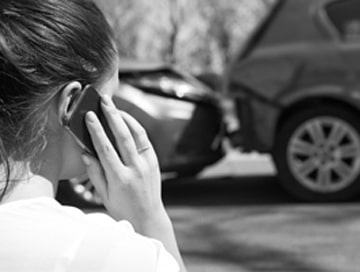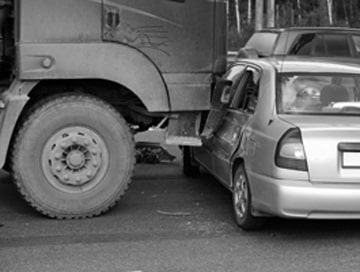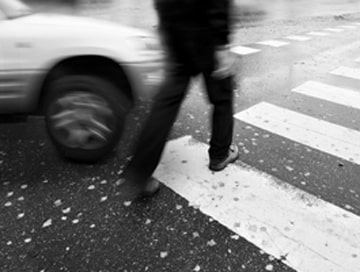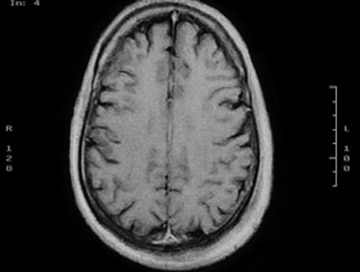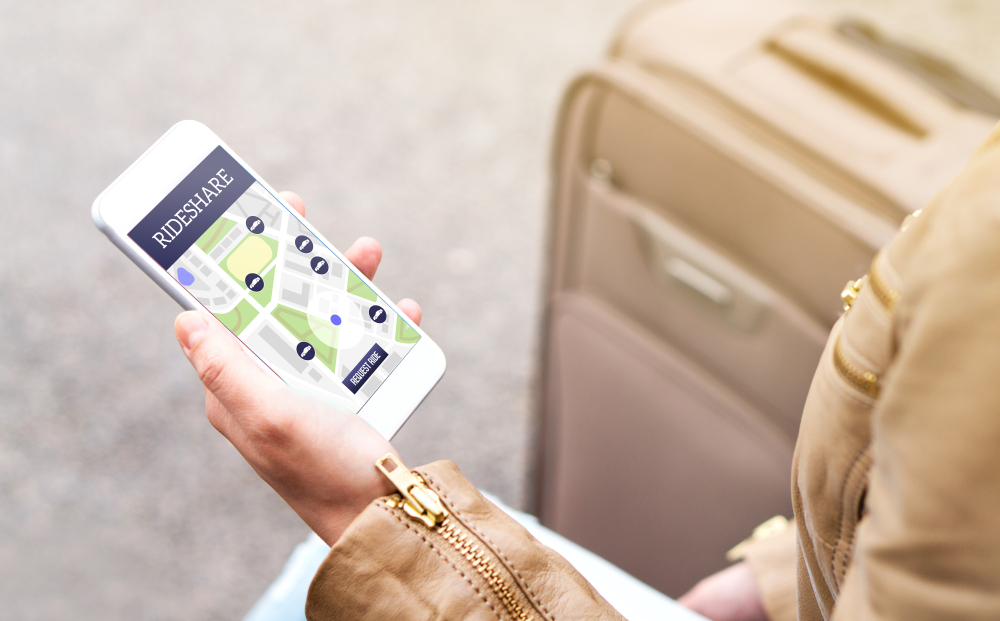
Ridesharing, a prevalent form of transportation, connects passengers with drivers through mobile apps, utilizing their personal vehicles to offer transport services.
This innovative concept has revolutionized commuting, providing an efficient and often economical alternative to traditional taxis or public transit. Companies like Uber, Lyft, and others have garnered immense popularity due to their user-friendly interfaces and accessibility.
However, within the convenience and widespread usage, understanding “what is a rideshare?” encompasses recognizing its potential risks and vulnerabilities, such as car accidents.
Despite the rigorous safety protocols and driver screenings implemented by rideshare companies, accidents involving rideshare vehicles, including car accidents, can still transpire.
These incidents range from minor collisions to severe crashes, resulting in injuries, property damage, and tragically, sometimes fatalities.
The dynamic nature of ridesharing, with drivers navigating city streets, highways, and congested traffic, exposes various road users to potential risks.
Moreover, the risks inherent in ridesharing extend to complex issues like insurance coverage, liability determination, and navigating the legal intricacies associated with accidents involving rideshare vehicles, including car accidents.
Ridesharing and Its Legal Implications
Rideshare services have transformed urban transportation, yet they come with legal complexities. These include contractual relationships among rideshare companies, drivers, and passengers. Such contracts often label drivers as independent contractors, impacting liability.
Liability in rideshare accidents is complex, involving drivers, rideshare companies, and third parties. Determining fault can be intricate, with scenarios involving driver fault, third-party negligence, or shared liability. This complexity complicates the process of seeking compensation for accident-related damages.
Insurance coverage adds another layer of complexity. Rideshare companies offer varying coverage levels based on the driver’s app status, for instance, if the status is waiting for a ride, en route to pick up, or transporting a passenger. Understanding these coverage variations is crucial in accident cases.
Navigating these legal intricacies requires knowledge of state laws, insurance policies, and contracts. Skilled attorneys specializing in rideshare accidents offer crucial guidance and representation to passengers, drivers, and affected parties pursuing compensation or addressing liability issues stemming from rideshare accidents.
Steps to Take After a Rideshare Accident
In the aftermath of a rideshare accident, knowing the precise steps to take is crucial to protect your well-being and legal rights. Here’s a comprehensive guide outlining the crucial steps individuals should take after a rideshare accident.
Prioritize Safety and Seek Medical Assistance
The first and most crucial step is ensuring everyone’s safety. If there are injuries, seek immediate medical attention. Even if injuries seem minor initially, it’s crucial to document them by visiting a healthcare professional. Prompt medical records can significantly support any future legal claims.
Document the Accident Scene
Take photos or videos of the accident scene, including vehicle damages, road conditions, traffic signs or signals, and any visible injuries. Collect contact information from witnesses who can provide details about the accident if needed later. Such evidence can serve as valuable support for insurance claims or legal proceedings.
Contact Law Enforcement
Call the police to the accident scene and file an official report. Provide accurate information about the incident while refraining from admitting fault or making any statements that could be misconstrued as an admission of guilt. The police report is crucial for insurance claims and legal processes.
Report the Accident to the Rideshare Company
Notify the rideshare company about the accident. However, avoid providing a recorded statement or signing any documents without consulting a personal injury attorney first. Be cautious with what information is shared to prevent potential issues with insurance claims or legal proceedings.
Consult with a Specialized Personal Injury Attorney
Seek legal advice from an attorney experienced in handling rideshare accident cases. A knowledgeable attorney can guide you through the complexities of insurance claims, negotiate with insurance companies on your behalf, and represent your interests in court if needed. They can help you understand your rights, assess the compensation you may be entitled to, and navigate the legal process effectively.
Act Promptly and Follow Legal Procedures
Time is critical in legal cases involving accidents. There are often time limits, known as statutes of limitations, for filing claims. It’s essential to act promptly to protect your legal rights and ensure that important evidence is preserved. Consulting with a lawyer early on can help you meet legal deadlines and take appropriate steps to pursue your claim effectively.
By following these steps after a rideshare accident, individuals can better position themselves to navigate the legal aspects, safeguard their rights, and potentially seek compensation for damages and losses resulting from the accident.
How Ridesharing Works
Ridesharing services operate through mobile applications that connect passengers in need of transportation with drivers willing to provide it using their own vehicles.
Companies like Uber, Lyft, and others have revolutionized commuting by offering a convenient and cost-effective alternative to traditional taxi services and public transport.
However, these services aren’t immune to accidents, which can occur due to various factors, including driver negligence, road conditions, or unforeseen circumstances.
Accidents involving rideshare vehicles vary in severity, ranging from minor incidents to more severe collisions resulting in injuries, property damage, or even fatalities.
These incidents, though not exclusive to ridesharing, pose risks to passengers, drivers, pedestrians, and other motorists sharing the road. The dynamic nature of ridesharing, where drivers navigate diverse traffic conditions, exposes individuals to potential dangers.
In rideshare accidents, navigating the aftermath can be complex. Determining liability and seeking compensation can present challenges due to the involvement of multiple parties, such as the rideshare company, the driver, insurance companies, and potentially other motorists or third parties.
In such cases, passengers and drivers involved in accidents often need guidance on their rights, the claims process, and potential legal action to pursue compensation for their injuries, medical expenses, and other damages incurred.
In accidents, determining which insurance policy applies and to what extent can be challenging. This complexity often necessitates legal expertise to navigate insurance claims and ensure that affected individuals receive fair compensation for their losses.
Personal injury attorneys specializing in rideshare accidents play a crucial role in helping victims understand their legal options, guiding them through the claims process, and advocating for their rights.
Safety Measures Implemented by Rideshare Companies
Rideshare companies prioritize passenger safety through various in-app features and safety protocols. These platforms offer real-time tracking of rides, enabling passengers to share ride details with contacts and emergency services.
Moreover, panic buttons within the apps allow quick alerts to authorities in case of an emergency during a ride. These safety features aim to enhance the overall security of passengers utilizing rideshare services.
Background Checks and Driver Screening
Ensuring passenger safety involves rigorous background checks for potential drivers. Rideshare companies conduct comprehensive screenings, including criminal background checks, driving records, and sometimes vehicle inspections.
These screenings help verify that drivers have valid licenses, maintain a clean driving history, and possess no criminal records that could compromise passenger safety.
Insurance Coverage for Drivers and Passengers
Rideshare companies typically offer insurance coverage that protects both drivers and passengers during rides. The insurance policies vary based on the ride’s stage, whether the driver is awaiting a ride request, en route to pick up passengers, or actively transporting passengers.
These insurance provisions are designed to provide financial protection in the event of unexpected incidents or accidents occurring during a ride.
Government Regulations and Oversight
Governmental regulations play a crucial role in overseeing ridesharing services. Authorities establish and enforce guidelines that rideshare companies must follow to operate within specific regions.
These regulations cover licensing requirements, insurance mandates, driver background checks, vehicle inspections, and safety standards. Compliance with these regulations is crucial to ensure the safety and well-being of both drivers and passengers and maintain the legality of rideshare operations.
While rideshare companies implement safety measures and adhere to regulations, accidents or safety breaches may still occur due to various factors. In such instances, passengers and drivers may face complexities in understanding their legal rights, navigating insurance claims, and seeking rightful compensation.
Seeking guidance from lawyers specializing in rideshare accidents becomes imperative to navigate the legal landscape, understand available options, and pursue appropriate compensation in case of incidents or accidents involving rideshare services.
Liability in Rideshare Accidents
Rideshare Driver’s Fault
Determining liability in rideshare accidents can be intricate, especially when evaluating the rideshare driver’s responsibility. Instances where a rideshare driver is at fault, such as distracted driving, running red lights, or speeding, present clear scenarios for liability assessment. In these cases, the driver’s actions may constitute negligence, making them accountable for resulting damages.
Third-Party Negligence
Apart from the rideshare driver’s actions, third-party negligence might also contribute to accidents. This could involve other drivers, road conditions, or even vehicle malfunctions.
Identifying the extent of third-party involvement is crucial in establishing liability. For instance, if another driver swerves abruptly into the rideshare vehicle’s path, resulting in a collision, determining that driver’s liability becomes essential.
Contributory Negligence Impact
Contributory negligence, where both parties share fault to varying degrees, adds complexity to liability determination. Bakersfield, California, operates under a comparative negligence system, allowing compensation even if the injured party holds some responsibility for the accident. However, the compensation awarded is proportionately reduced based on the degree of fault attributed.
Evaluating Liability Factors
Rideshare companies might bear liability in some cases, particularly if they overlooked driver background checks, failed to address reported safety concerns, or inadequately maintained the app leading to confusion. These factors collectively are fundamental to establishing the liable party or parties in rideshare accidents.
In essence, pinpointing liability in rideshare accidents involves an intricate examination of various elements, including the rideshare driver’s actions, potential third-party involvement, and the degree of contributory negligence.
Challenges and difficulties in determining liability
Determining liability in rideshare accidents presents unique challenges. Rideshare drivers often use their personal vehicles for both personal and professional purposes, blurring the lines of liability.
When an accident occurs, various parties might be involved, including the rideshare company, driver, other motorists, and passengers. This complexity complicates the process of determining fault and liability, particularly when multiple contributing factors are involved.
Liability in rideshare accidents might also depend on the phase of the ride at the time of the incident. Determining which insurance policy applies and to what extent can be challenging, especially when the accident occurs during a transition phase between different stages of the ride.
Common Causes of Rideshare Accidents
Accidents involving rideshare services are a reality despite the safety measures implemented by companies like Uber, Lyft, and others. The nature of ridesharing, which involves constant urban driving through congested traffic, increases the probability of accidents.
Factors like heavy traffic, sudden lane changes, distracted driving, and frequent stops and starts heighten the risk of collisions, regardless of safety protocols.
Common causes of accidents involving rideshare services often align with those seen in general traffic incidents. Distracted driving remains a prevalent factor, with drivers frequently interacting with the rideshare app or GPS while driving.
Compensation Claims in Rideshare Accidents
In the aftermath of a rideshare accident, seeking compensation can be a complex process involving various steps and considerations.
Firstly, after a rideshare accident occurs, it’s crucial to prioritize safety. Seek immediate medical attention for any injuries sustained by contacting emergency services.
Rideshare companies like Uber and Lyft typically provide insurance coverage, but apart from the insurance provided by the rideshare company, injured parties might also seek compensation from their personal insurance policies.
Depending on the circumstances and the coverage available, this might include using their health insurance, uninsured/underinsured motorist coverage, or other applicable policies to cover medical expenses and other damages resulting from the accident.
When navigating compensation claims in rideshare accidents, legal guidance can significantly impact the outcome.
Contacting a skilled personal injury attorney experienced in rideshare accident cases is advisable. Kuzyk Personal Injury & Car Accidents Lawyers’s expertise in these cases can provide invaluable assistance by evaluating the specifics of the accident, determining liability, assessing insurance coverage, negotiating with insurance companies, and representing injured parties in legal proceedings if needed.
Ultimately, the process of seeking compensation after a rideshare accident requires a comprehensive understanding of insurance policies, legal rights, and potential liabilities.
Working with legal professionals familiar with the intricacies of rideshare accidents can enhance the chances of obtaining fair compensation for injuries, medical expenses, lost wages, property damage, and other losses incurred due to the accident.
Have Questions? Contact Kuzyk Personal Injury & Car Accidents Lawyers Today!
Seeking compensation after a rideshare accident can be a daunting process. However, you don’t have to face it alone. At Kuzyk Personal Injury & Car Accidents Lawyers, we comprehend the complexities surrounding ride-share accidents and have a proven track record of securing rightful compensation for our clients.
Our specialized attorneys understand the nuances of these cases, navigating the intricacies of insurance claims and legal procedures to ensure that you receive the compensation you deserve.
With our expertise and commitment, rest assured that we’ll stand by your side, advocating for your rights and fighting for the compensation you’re entitled to. Reach out to us today for reliable guidance and dedicated representation throughout this challenging process.
